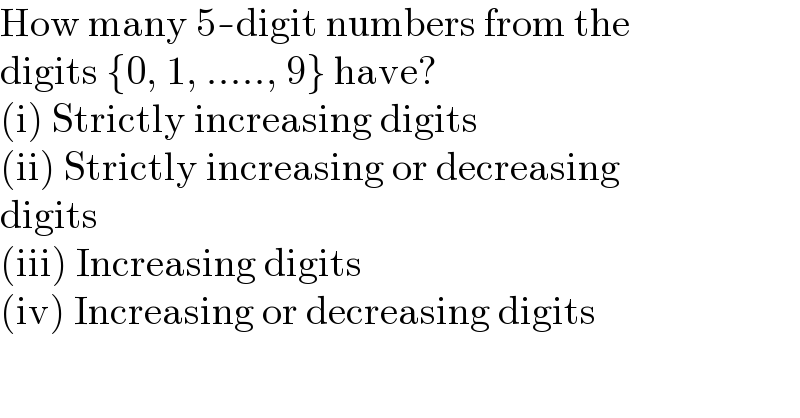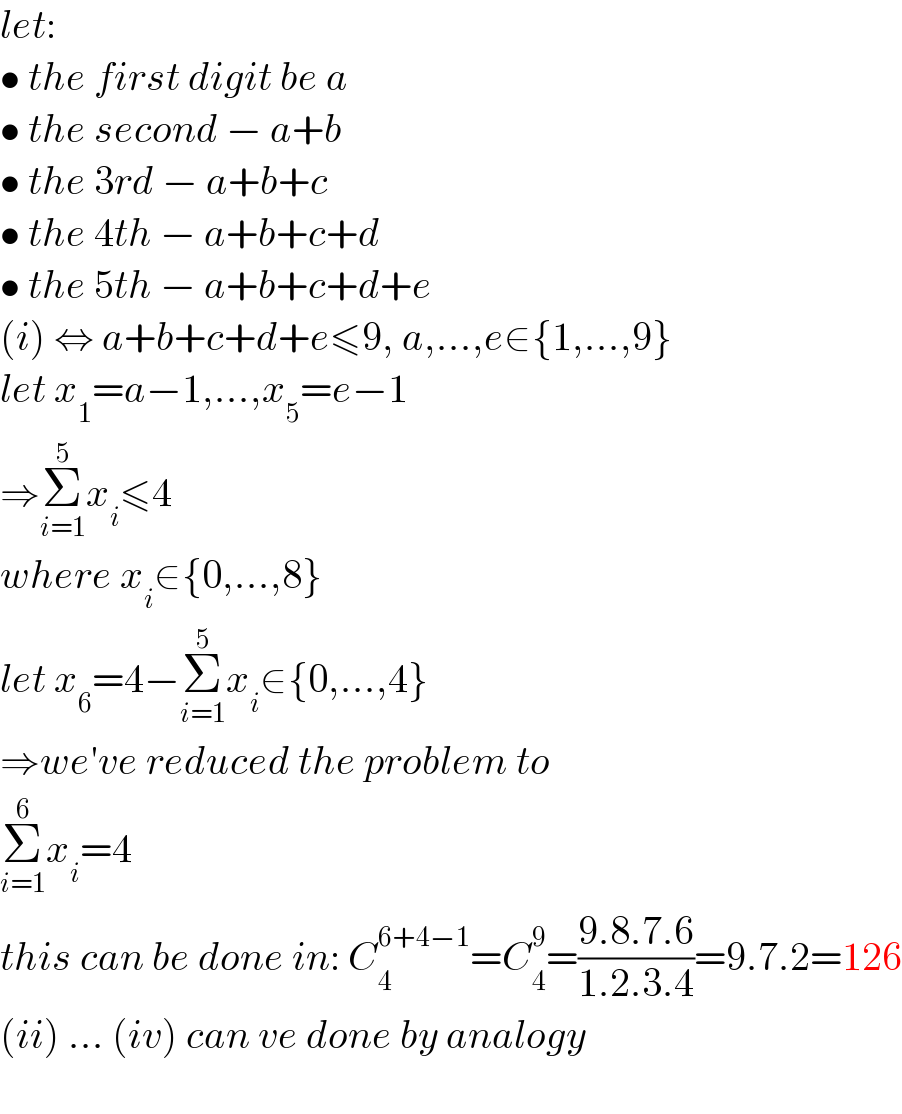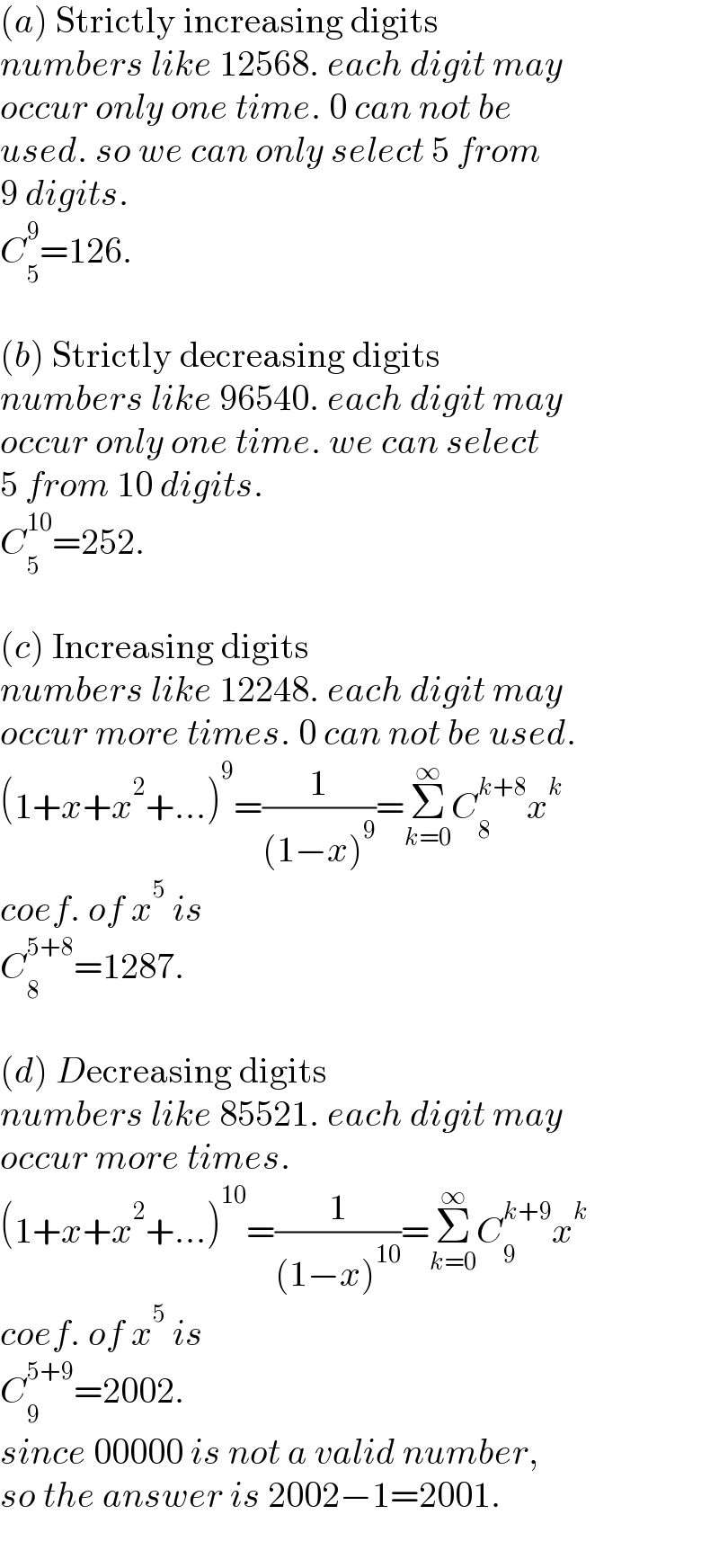
Question and Answers Forum
Previous in Permutation and Combination Next in Permutation and Combination
Question Number 171011 by mr W last updated on 06/Jun/22

Answered by aleks041103 last updated on 07/Jun/22

Commented by mr W last updated on 08/Jun/22

Answered by mr W last updated on 09/Jun/22

